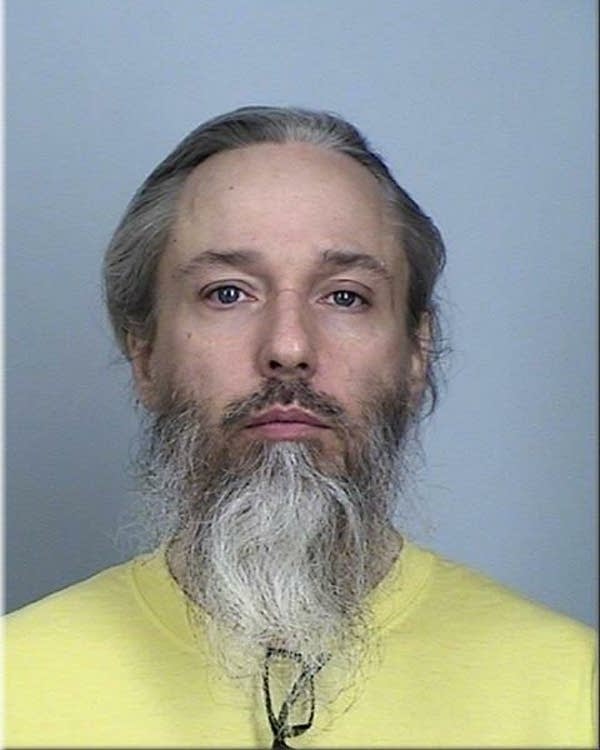Jury finds Illinois man guilty on all counts of plotting Twin Cities mosque attack

Go Deeper.
Create an account or log in to save stories.
Like this?
Thanks for liking this story! We have added it to a list of your favorite stories.
Updated: 5:50 p.m.
A federal jury in St. Paul found Michael Hari of Clarence, Ill., guilty of all five counts, including hate crime and explosive charges in the 2017 firebombing of the Dar Al Farooq Islamic Center in Bloomington, Minn.

Federal prosecutors say Hari, 49, planned the attack, built a large pipe bomb made of black powder, and enlisted two younger men from his hometown, who drove with him more than 500 miles to carry out the bombing.
On Aug. 5, 2017, around 5 a.m., 25-year-old Joe Morris broke a window in the imam’s office and threw in a plastic container with gasoline and diesel fuel. Michael McWhorter, 31, lit the fuse on the bomb and tossed it inside.
Five people were in the building for early prayers. No one was hurt physically. But in interviews with MPR News early this year and in court testimony recently, mosque executive director Mohamed Omar said the congregation was traumatized and many members continue to live in fear.
Turn Up Your Support
MPR News helps you turn down the noise and build shared understanding. Turn up your support for this public resource and keep trusted journalism accessible to all.
McWhorter and Morris testified against Hari. They face 35-year mandatory minimum prison sentences.
Morris described how he and McWhorter carried out the attack while Hari waited in a rented pickup. Morris said McWhorter struggled to light the fuse and had to run back the truck to get another lighter. Morris said they high-fived when they heard about the explosion on a police scanner.
McWhorter testified that they chose what turned out to be the imam’s office window because the lights were off and they didn’t want to hurt anyone. Under questioning from the government, McWhorter said he had second thoughts, but feared Hari would shoot him if he didn’t follow through with the plan.
‘Mr. Hari hates Islam’
Assistant U.S. Attorney John Docherty pointed to a manifesto that Hari wrote for his militia and said the defendant had a deep-seated animus for Muslims and Islam.
“From what he says and what he writes, Mr. Hari hates Islam, he hates Muslims, and because of that hate, he bombed a mosque,” the prosecuting attorney said. In the summer of 2017, Docherty argued, Hari “moved from violent words to preparing violent criminal acts.”
The prosecutor outlined the evidence the FBI collected, including cellphone tracking data that shows Hari driving to Indiana to buy black powder prior to the bombing and taking a circuitous route back to Illinois via western Iowa.
Docherty also outlined computer evidence that in the weeks before the attack, Hari researched Dar Al Farooq online, even Googling the imam’s name, and got driving directions to Bloomington.
Shannon Elkins, Hari’s lead public defender, asked jurors to keep an open mind and be skeptical of the government’s evidence.
She questioned why prosecutors didn’t call other witnesses from Hari’s hometown, even though they were mentioned at trial. And she pointed to problems with the testimony of McWhorter and Morris, such as inconsistent statements about what they wore on the morning of the attack.
In addition to the guilty charges in St. Paul, a second federal indictment from a grand jury in Urbana, Ill., charges Hari with crimes related to an alleged campaign of militia violence. Among other things, authorities say he tried to bomb a women’s clinic, blew up train tracks to extort a railroad and tried to frame his neighbor Jon O’Neill amid an ongoing feud by planting bomb materials in O’Neill’s backyard shed and emailing a phony tip to the Bureau of Alcohol, Tobacco, Firearms and Explosives.
‘Sigh of relief’
Local faith leaders gathered in front of the federal courthouse building in St. Paul and thanked prosecutors and the jury during a press conference after the verdict was delivered. Abdulahi Farah, program director at Dar Al Farooq Islamic Center, told reporters the jury "did the right thing today."
Many in the local Islamic community didn't believe he'd be found guilty, he said. The mosque lost members following the bombing but people are returning, he added.

Jaylani Hussein, executive director of the Minnesota chapter of the Council on American-Islamic Relations, said during the press conference that while justice has been served in this individual case, the threat of violence toward Muslim communities by white supremacist groups still exists. Hussein said these groups have been galvanized by the Trump administration and that he is concerned the groups will take out their frustration with the president's loss in November's election on Muslim communities across the nation.
“We urge, as we celebrate today's verdict, that law enforcement and particularly state and federal leadership do not ignore ... the potential for more severe crimes like this happening moving forward,” he said.
Asad Zaman, an imam and executive director of the Muslim American Society of Minnesota, said jurors sent Hari a "very clear message: Your hate has been rejected and you are deemed a criminal, and this society does not agree with what you have done."
An attack on a house of worship hits home for all law-abiding Minnesotans, who "breathed a sigh of relief today," he said.
Zaman and others on Wednesday also urged state and federal authorities to enact laws specifically targeting domestic terrorism.
Watch: Twin Cities Muslim leaders react to conviction of Michael Hari
The Associated Press contributed to this story.


